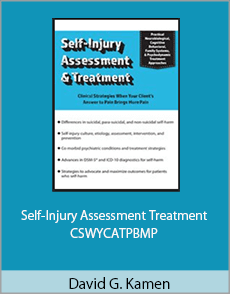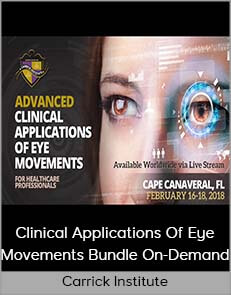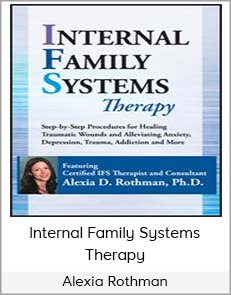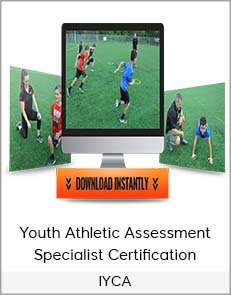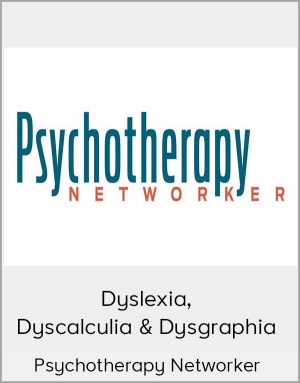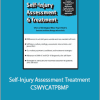David G. Kamen – Self-Injury Assessment Treatment – CSWYCATPBMP
$45.00$219.99 (-80%)
Effective triage, coordination of care, and risk-management practices for your work with self-injury patients, their parents, families, and friends will be addressed.
David G. Kamen – Self-Injury Assessment Treatment – CSWYCATPBMP
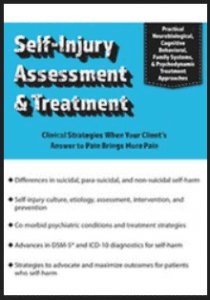
Check it out: David G. Kamen – Self-Injury Assessment Treatment – CSWYCATPBMP
Description
Whether the behavior is cutting, burning, piercing, starving, purging, head banging, or some other method, self-harming behaviors and the emotions underlying them know no bounds with respect to race, ethnicity, age, socioeconomic class, or gender. Feeling shame and embarrassment, those who engage in self-harm may privately console themselves, or befriend other self-injurious peers – which can further intensify the lethality and suicidal intent of their acts. Studies show that professionals who work with adults and youth who self-injure find it to be one of the most challenging psychological issues to treat.
David Kamen, PhD, will equip you with practical, evidence-based tools to assess and treat deliberate self-harm, along with other co-morbid psychiatric disorders including major depressive disorder, obsessive-compulsive disorder, eating disorders, and substance abuse. Effective triage, coordination of care, and risk-management practices for your work with self-injury patients, their parents, families, and friends will be addressed.
The theoretical and cultural reasons for this epidemic will be explored. Practical approaches that work for individual, group, and family psychotherapy in inpatient, outpatient, school, and community settings will be shared, along with resources to prepare professionals and caregivers to help those who engage in self-injury.
Handouts
Outline
SELF-INJURY DIAGNOSIS AND TREATMENT COORDINATION
- Review the spectrum of self-injurious behaviors
- Epidemiology of adult and youth self-injury
- Triage of self-Injury, including:
- Level-of-care assessment
- Lethality risk- and protective-factor assessment
- Functional behavioral analysis of self-injury
- DSM-5® and ICD-10 diagnostic advances
- Mental status examination
- Identification and treatment of co-morbid disorders
- Treatment planning
- Coordination of care amongst mental health professionals, educators, and healthcare professionals
- Specialized clinical personality and art therapy assessment
COGNITIVE-BEHAVIORAL, NEUROBIOLOGICAL, FAMILY SYSTEMS, AND PSYCHODYNAMIC ASSESSMENT AND TREATMENT APPROACHES:
- Motivational interviewing; development of therapeutic alliance
- Exposure with response prevention to extinguish self-injurious behaviors
- Dialectical behavior therapy tactics
- Coping skills to break the habit of self-injury
- Intersubjective and interpersonal therapeutic communication techniques
- The corrective emotional experience and empathic dialogue
- Exposure and resolution of self-injury defense mechanisms
PROFESSIONAL ETHICS, CASE MANAGEMENT, AND LIABILITY RISK MANAGEMENT
- Review of bioethical and legal risk management principles, including
- HIPAA compliance, duty-to-warn issues; ethical and legal dilemmas
- Tips for:
- Professional self-care
- Peer-to-peer collaboration and supervision, to prevent clinician burnout and vicarious traumatization
REVIEW OF PROFESSIONAL, PATIENT, AND CONSUMER-FOCUSED INTERNET RESOURCES AND APPS FOR:
- Self-injury psychoeducation
- Clinical assessment
- Motivational and therapeutic alliance-assessment
- Mental health case law and professional ethics websites
- Self-monitoring of self-injury thoughts, feelings, and behaviors
- Internet resources that are immediately usable for schools, parents, and clients
- Educational and therapeutic use of social networking sites
- YouTube
- Other
Faculty
David G. Kamen, PH.D.
David Kamen, Ph.D., is a clinical psychologist licensed in New Hampshire and Massachusetts, where he works regularly with adults, adolescents, and children who engage in self-injurious behavior. He has worked with professionals and educators through his practice, and through his work in community mental health and emergency room settings. In full-time practice for many years, Dr. Kamen has been counseling self-injurious patients through individual and group therapy formats, using psychodynamic, cognitive-behavioral and family systems approaches.
Dr. Kamen has also served as a forensic psychologist to address the issues of self-injury in victims of child abuse and neglect. His research has been presented at the International Society for the Study of Self-Injury (ISSS), the American Psychological Association (APA), Saint Anselm College of Nursing, Continuing Education, and featured in The International Journal of Behavioral Consultation and Therapy, as well as The New Hampshire Trial Bar News. Dr. Kamen has been teaching continuing education workshops on the treatment of self-injury since 2009, and is currently writing a book on self-injury.
Speaker Disclosures:
Financial: David Kamen has an employment relationship with The Counseling Center of Nashua. He receives a speaking honorarium from PESI, Inc.
Non-financial: David Kamen is a member of the American Psychological Association.

